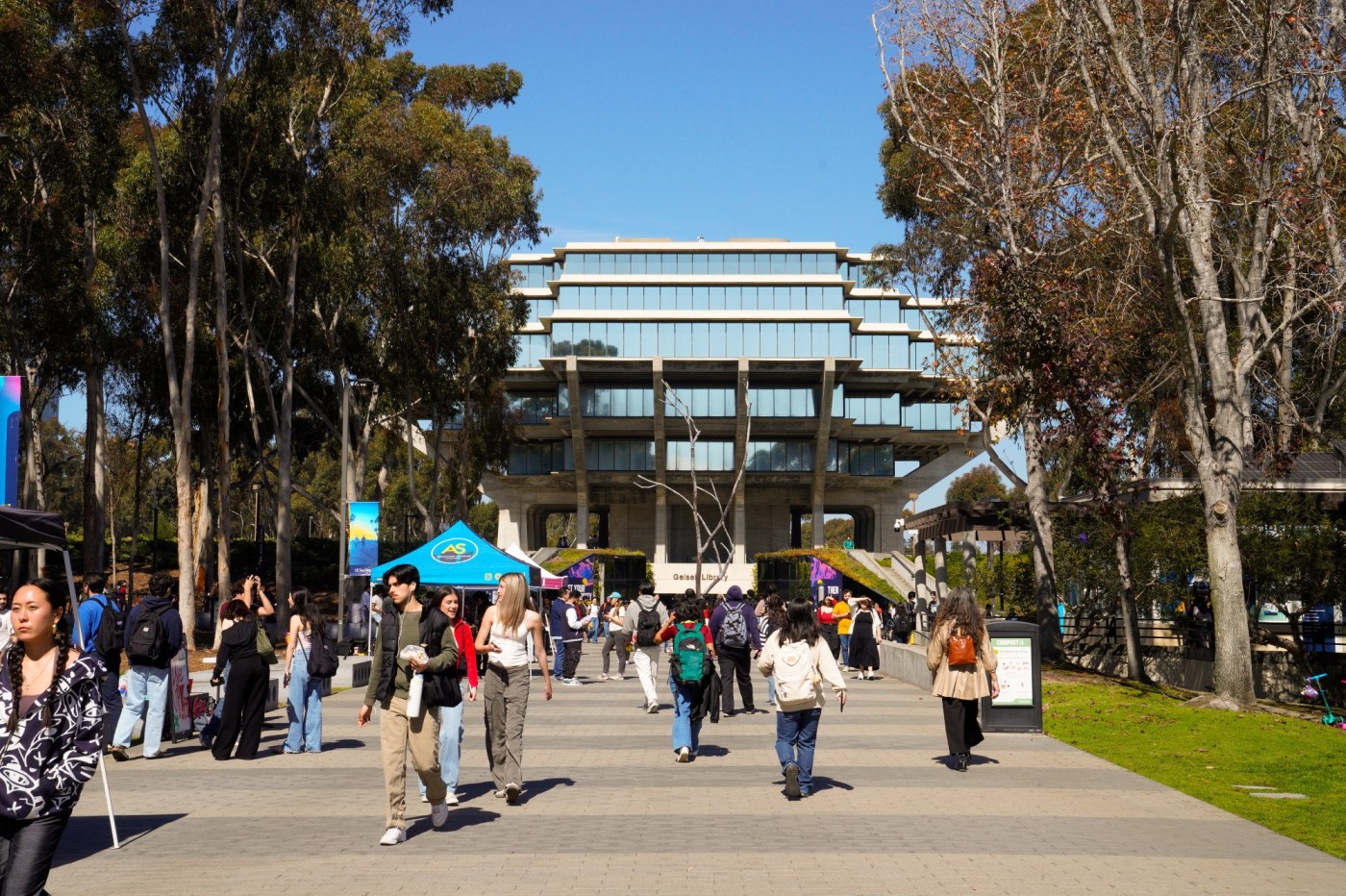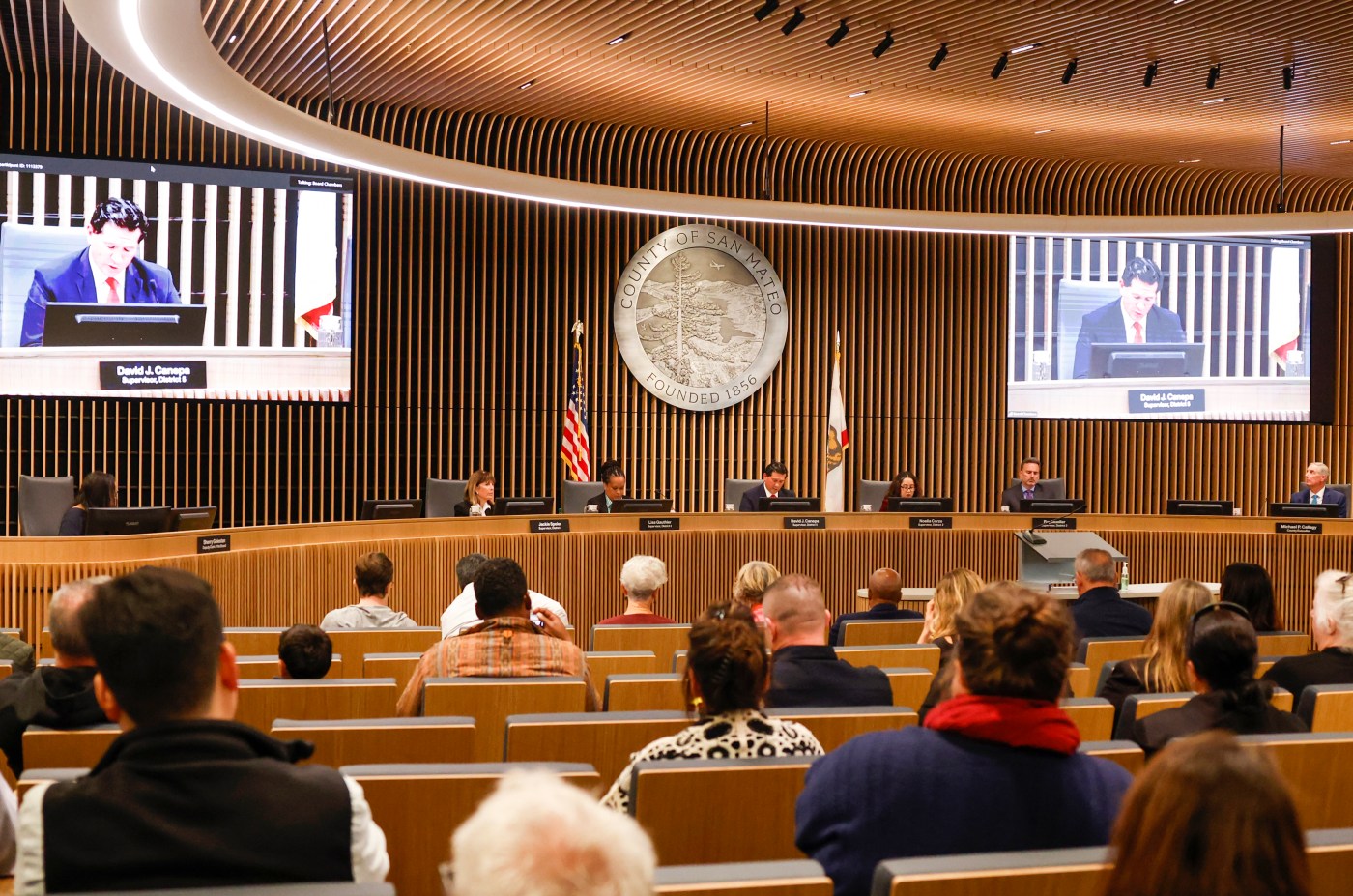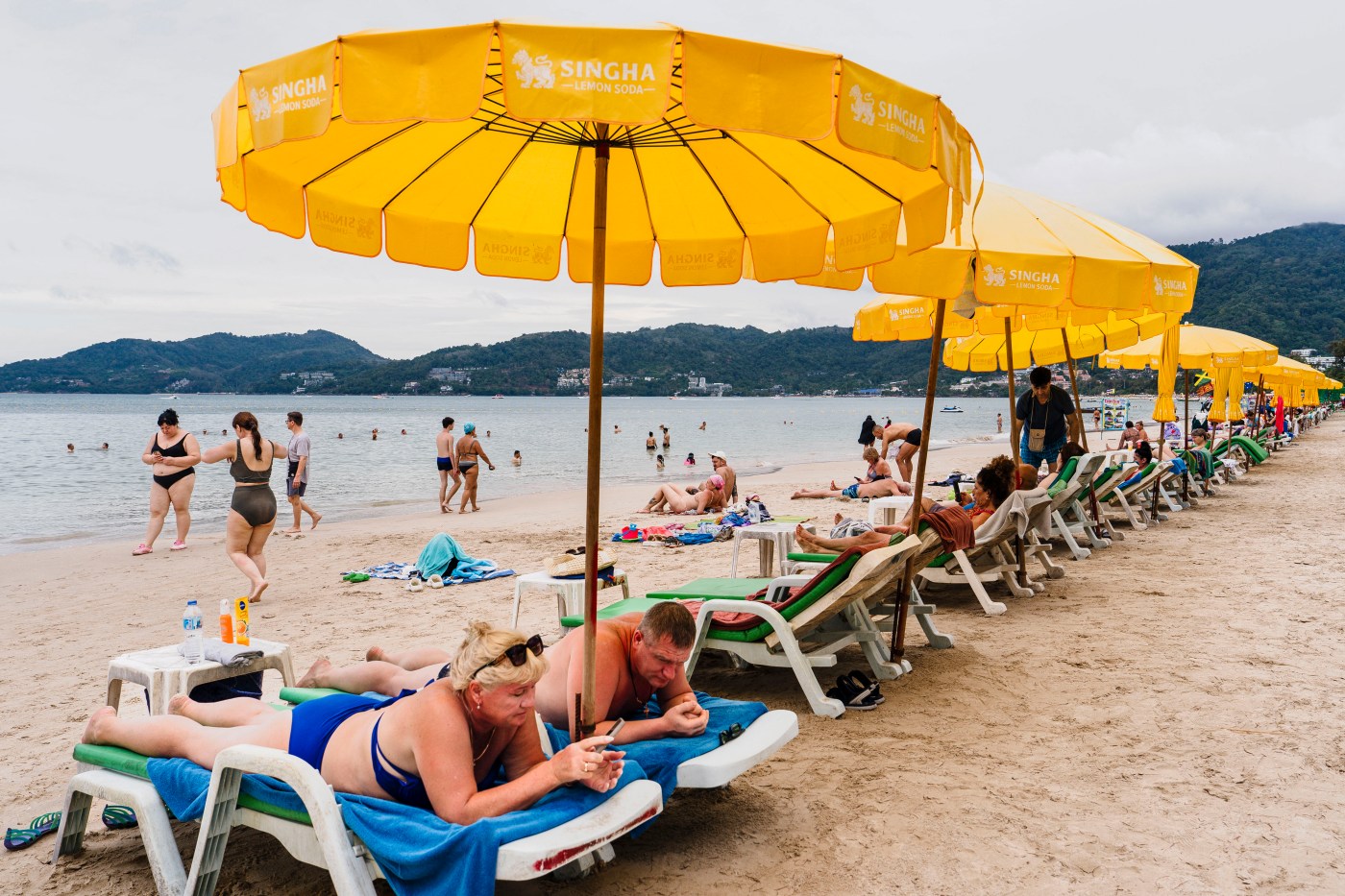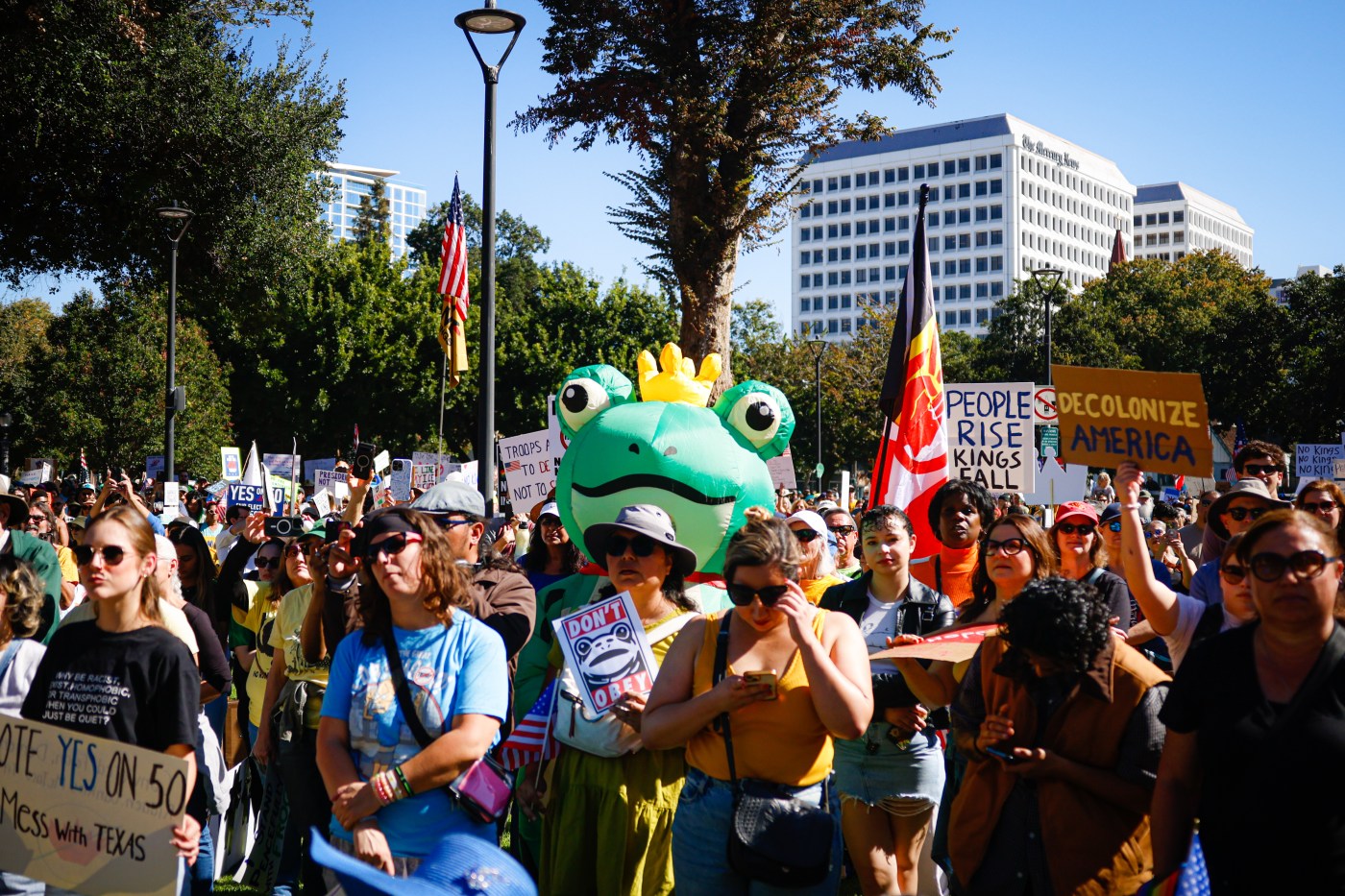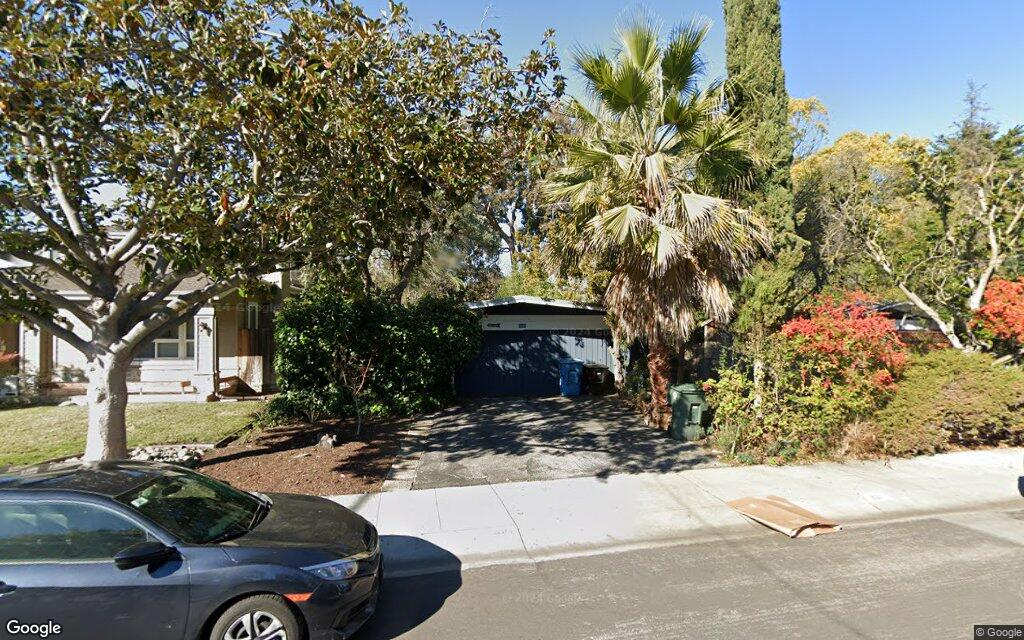The Trump administration has canceled the F-1 visas of five international students at UC San Diego, adding the school to the growing list of universities nationwide where the government is taking such action.
“The federal government has not explained the reasons behind these terminations,” Chancellor Pradeep Khosla said in a campus notice posted shortly before 9 p.m. Friday. “The students have been notified, and we are working directly with them to provide support.”
REALTED: UC Berkeley professors sought by Trump administration for signing Israel-Hamas petitions
Khosla said that one other UCSD student was detained at the border earlier this week, denied entry and deported to their home country. The university did not provide further details.
“Because of student privacy laws, we are not able to comment beyond that at this time,” Matt Nagel, UCSD’s director of communications, told the Union-Tribune on Saturday.
UCSD is the nation’s sixth-largest research university and has long been a magnet for international students. Nearly 7,200 of its 44,256 students come from other countries, mostly to earn degrees in STEM fields. The number has slipped in recent years largely due to tension between the U.S. and China.
Khosla, an engineer who was born and raised in India, has been one of the strongest proponents in the University of California system for recruiting foreign students.
Terry Gaasterland, a senior biology professor, said Saturday, “Luckily, we have strong remote learning policies and mechanisms in place (that international students might be able to use). I hope the students will be able to complete their spring quarter.”
The five international students who lost visas at UCSD were among more than a dozen California students who were told to leave the country by the Trump administration, the Los Angeles Times reported. The others are at UCLA and Stanford.
A University of California statement implied that students at other campuses have also had their visas revoked but did not offer more details.
The statement said UC is “aware that international students across several of our campuses have been impacted by recent SEVIS terminations,” referring to the U.S. government’s Student and Exchange Visitor Information System database.
RELATED: Stanford University to host town halls amid funding uncertainties, federal scrutiny
“This is a fluid situation, and we continue to monitor and assess its implications for the UC community and the people affected. We are committed to doing what we can to support all members of our community as they exercise their rights under the law. In doing that, the university will continue to follow all applicable state and federal laws.”
Spokespeople for the UC Office of the President, the central administrative operation that works with all campuses and handles federal government relations, did not immediately reply to The Times’ request for more details.
The actions are part of mass visa cancellations that appear to have unfolded at campuses across the country on Friday and caught school administrators by surprise.
While actions by the Trump administration to cancel student visas and arrest students last month targeted pro-Palestinian activists, the reasons for these changes were unclear.
A representative for Students for Justice in Palestine at UCSD said the group was trying to get more information about those affected to determine whether any were student protesters.
Last month, the Trump administration began revoking student visas at high-profile campuses, including Columbia, Cornell, George Washington, Tufts and other universities where it alleged that the students affected were antisemitic and aligned with terrorists because of their pro-Palestinian writings or protests.
The administration accused the students of supporting Hamas, which the U.S. designates as a terrorist organization, and says they are threats to national security and U.S. foreign policy. The students argue that their free speech rights in support of Palestinians are being trampled.
The cases, some of which led to immigration arrests, are being fought in federal courts. Several students are being held at immigration detention facilities.
The administration has also started canceling visas for students who were not involved in pro-Palestinian protests but had other violations on their records. For example, officials said this week that the visa of a University of Minnesota student was revoked in March because of a 2023 drunken driving incident in which he pleaded guilty.
Speaking March 27 during a visit to Guyana, Secretary of State Marco Rubio said the U.S. had at that point revoked 300 visas and would continue its evaluations.
“We do it every day. Every time I find one of these lunatics, I take away their visa,” Rubio said, referring to student protesters. “I hope at some point we run out because we have gotten rid of all of them, but we’re looking every day for these lunatics that are tearing things up.”
Rubio said the government canceled “primarily student visas” and “some visitors visas.” The group included cases “unrelated to any protests” that have to do with “potential criminal activity.”
At UCSD and many other campuses, the Trump administration did not communicate the visa changes to universities. Instead, the cancellations were discovered while university officials checked SEVIS, a student database under the Department of Homeland Security that lists international student statuses.
International students typically have two certifications that allow them to come to the U.S. and study.
Student visas give individuals permission to enter the U.S. while “student status” confirms that a person is enrolled in classes and abiding by other restrictions, such as limitations on employment. Visas are granted and revoked by the Department of State. Student status is maintained in SEVIS.
Under previous administrations, students who had entry visas canceled were typically allowed to stay in the U.S. legally to study. If they left the U.S. and wanted to return, they would have to renew their visas. The current actions by the Trump administration appear to be changing both visa and student status.
Schools with large international populations usually have campus centers devoted to aiding students and professors with visas, housing and other areas, including maintaining SEVIS.
